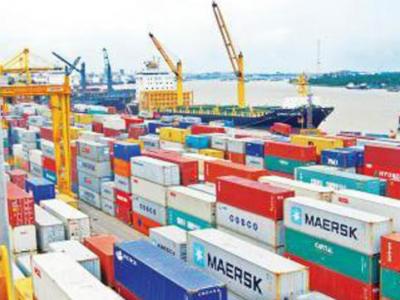The Working Committee on Anti-Money Laundering-Combating Financing of Terrorism has directed all the ports in the country to install scanners to examine incoming and outgoing goods to prevent the siphoning off money through export and import.
At a recent meeting, the committee has also asked the National Board of Revenue (NBR) to make sure that the directive is implemented properly.
According to the meeting minutes, Bangladesh’s stance, especially its related laws and reforms of institutional structures, will be evaluated at the upcoming meeting of the Asia Pacific Group (APG) on Money Laundering where the country has the scope to upgrade its rating, said secretary general of the committee M Rizwanul Huda.
The annual APG meeting will be held in August next where the organisation will review Bangladesh’s activities to check money laundering and combat terror financing.
For this, a progress report and an action plan have to be submitted to the APG, and the working committee discussed the matter at the meeting presided over by Financial Institutions Division secretary Asadul Islam.
The meeting was informed that money laundering is taking place in the country through the under and over invoicing of international trading.
At the meeting, the representative of the Anti-Corruption Commission (ACC) expressed grave concern over the money laundering and drew NBR’s attention to the issue.
The NBR representative informed the meeting that the revenue authority has a plan to install scanners at all the ports of the country to examine all the import-export items.
At the meeting, it was decided that scanners have to be installed in all ports to check import and export goods to prevent money laundering through over invoicing or any other means.
Sources said the APG has put forward some proposals to upgrade the rating of Bangladesh’s legal and institutional structures to prevent money laundering and combat financing of terrorism.
To implement the proposals, the government has formulated a plan through a coordination committee. Different ministries are implementing the plan. The meeting was informed of the progress of the implementation.
The Global Financial Integrity in its latest report said some US$9.11 billion was siphoned out of Bangladesh in 2014 while the amount was $61.6 billion between 2005 and 2014.
It said this money was siphoned off through over invoicing, under invoicing, hundi and transfer pricing.
According to the GFI, a Washington-based firm, a total of $34.12 billion flew out of Bangladesh between the years of 1990 and 2008. It means the country lost $1.8 billion in capital a year during that period, causing the tax authority to lose a huge amount of revenue.
Tax Justice Network, a UK-based advocacy group, found that Bangladesh had lost around Tk 1,976 billion between 1976 and 2010 due to illicit capital flight.
Source: Prothom Alo.

